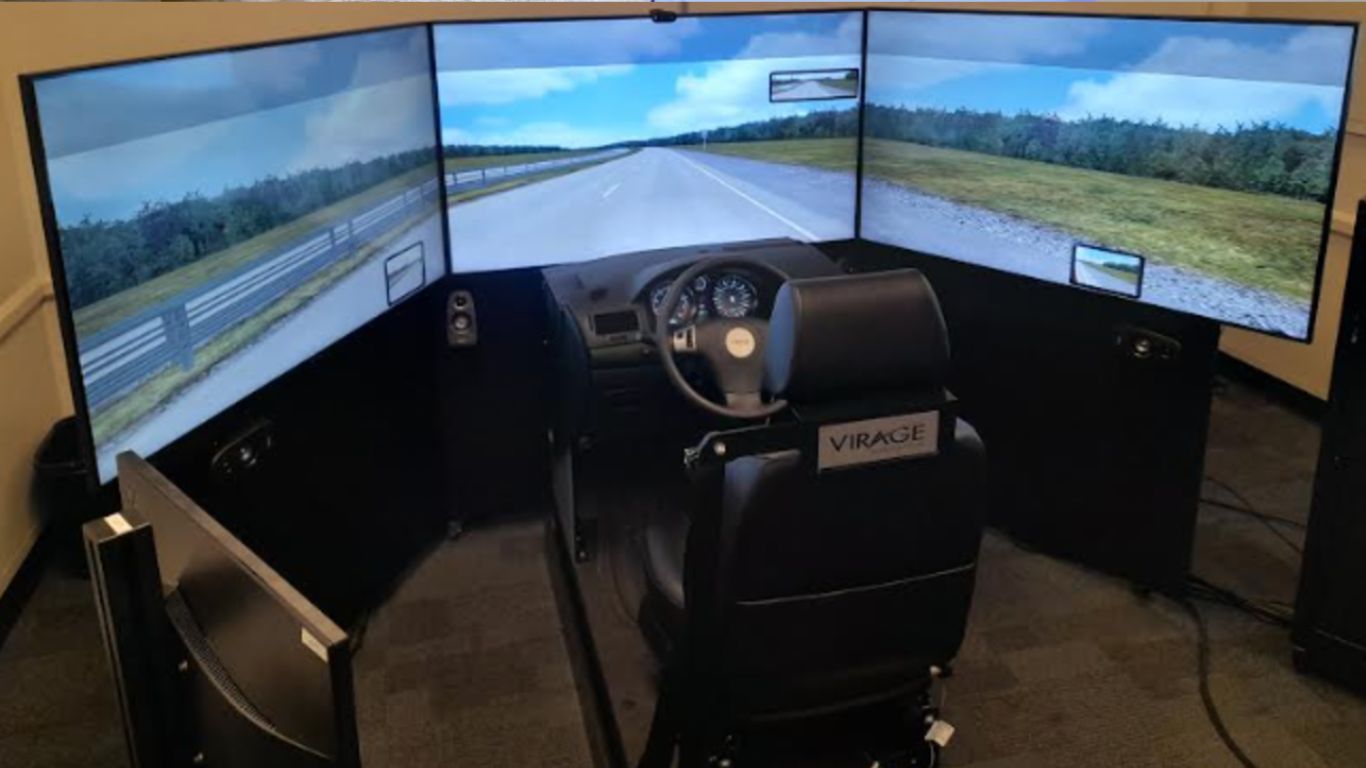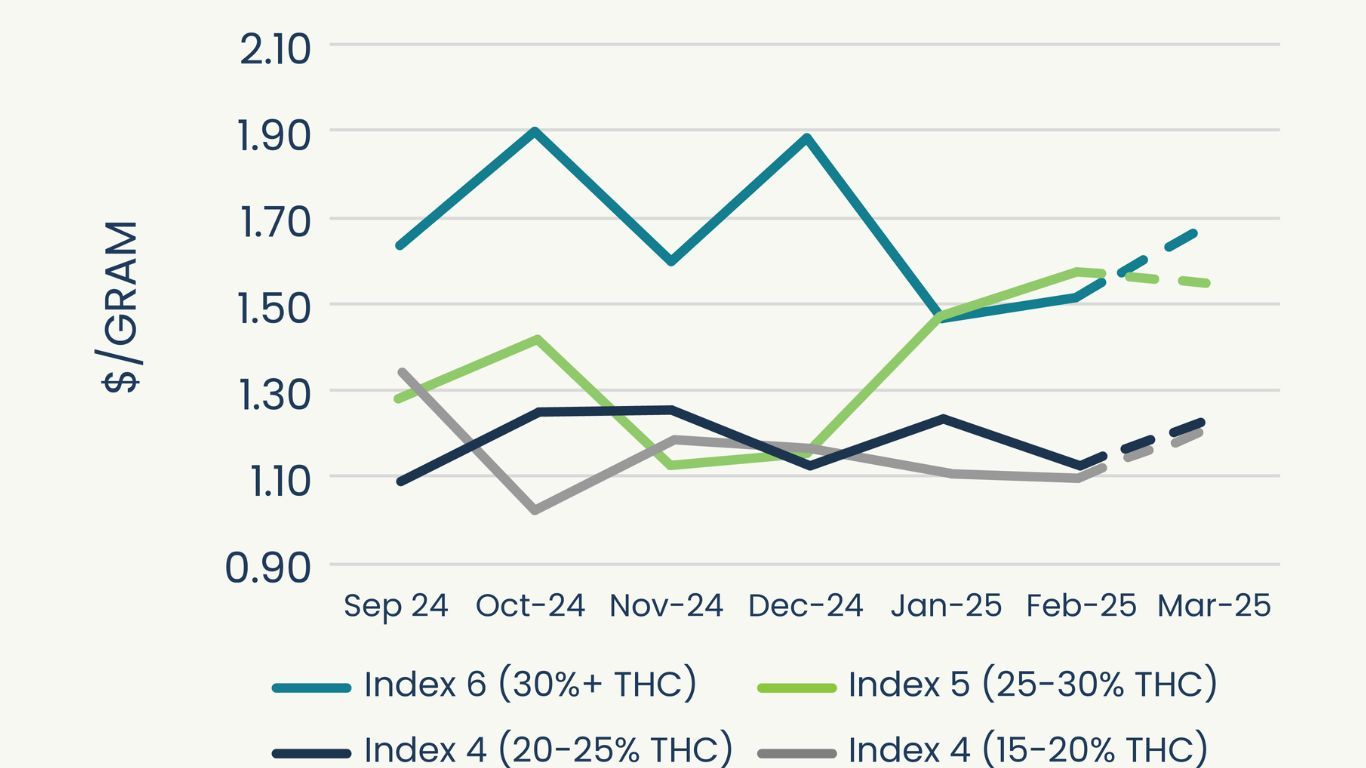
A researcher with the Vancouver Coastal Health Research Institute and the University of British Columbia is recruiting people who use cannabis for medical purposes for a driving simulation study.
The study, which plans to begin recruiting for participation in early 2025, is being led by Dr. Jeff Brubacher, the director of the Vancouver General Hospital Emergency Medicine Research Program. Brubacher is also director of the Road Safety and Public Health Research Lab at the University of British Columbia (UBC), and professor in the UBC Department of Emergency Medicine.
The goal of the study is to look at two separate streams of medical cannabis users: Those who are just starting to use cannabis for medical purposes and those who have been using it for this purpose prior to the study.
In the first stream, those with no prior medical cannabis use will be tested before beginning their use of cannabis, then again after the onset of use after one month and four months.
Brubacher explains this will help provide a baseline of participants’ driving abilities, giving a better understanding of how cannabis use might impact them. While impairment from cannabis is one factor to consider, he also notes that some who are using cannabis for medical purposes are doing so to help transition away from opioids or benzodiazepines, which could mean impairment could potentially decrease following cannabis use.
“The question is, what happens to your driving after you start medical cannabis,” he explains. “Did you get better or did it get worse?”
The second stream of study participants will be recruited from people already using cannabis for medical purposes with authorization from a medical professional. Similarly, the goal with this cohort will be to measure the impact of cannabis use on their abilities to drive, as well as taking specific cognitive tests.
Cannabis users will be asked to abstain from taking any cannabis products the night prior to the study. On the day of the study, they will take the tests before using cannabis and then again after 30 minutes, two hours, four hours, and six hours.
“The question there is, after I take my regular cannabis, do I have some driving impairment or not,” said Brubacher. “And if I have it, when does it occur and how long does it last?”
Driving abilities will be monitored using the High Fidelity Driving Simulator, measuring for things such as speed, weaving, reaction time, and collisions. The study will be conducted at the Vancouver General Hospital campus in Vancouver.
In addition, researchers will take blood samples from participants to determine the level of detectable THC in their system. This will not only provide researchers with a correlation between participants’ results on the driving simulator but also give participants a better understanding of their blood/THC levels at any given time, especially after they have abstained overnight.
This is especially important, he notes, since THC can linger in the blood sometimes well after any impairing effects have passed. The allowable legal limit in Canada is less than 2 nanograms (ng) of THC per millilitre of blood.
“How many people are driving around with a THC level that is illegal—above 2 nanograms per millilitre for example— but are totally unimpaired?” he asked. “I think we have to look at that because it’s not fair or just for someone to be on prescribed medication and be at risk that if anything happens and they get tested, there could be legal implications. So I think knowing their THC levels when they’re not impaired will be interesting.”
The Canadian Institute of Health Research (CIHR) is funding the research. It is seeking to recruit 360 medical cannabis users for the study, which is expected to take around three years.
Brubacher and his team are also working with Vancouver-area medical cannabis clinic Green, Leaf Medical Clinic to recruit participants for the study.
Working with the clinic’s medical director, Dr. Carolyn MacCallum’s patients who fit the parameters of the study will be given a chance to participate.
Fonda Betts, the clinic’s CEO, says she and her team are excited to be a part of the project and highlight the need for this type of research. While there has been similar research looking at non-medical cannabis users, building a set of data that looks at how cannabis use impacts driving abilities, if at all, is important.
“It’s a little different when you’re using it as a medical patient compared to recreational cannabis use. A medical patient is using it for symptom management, a better quality of life, whereas a recreational user may be used to being impaired, using cannabis to get high.”
The goal for a medical cannabis user under the guidance of a medical professional at Green Leaf is to achieve what she says is a goal of finding beneficial effects for the user before reaching a level that impairs the person.
“This study, I hope, will help show that medical cannabis will have little to no impact on driving abilities. That’s our hope. So if we can provide the data to support that, it can reassure patients, health care professionals, and the public that medical patients are using it safely.”
Those interested in taking part in the study can reach out here: [email protected].











